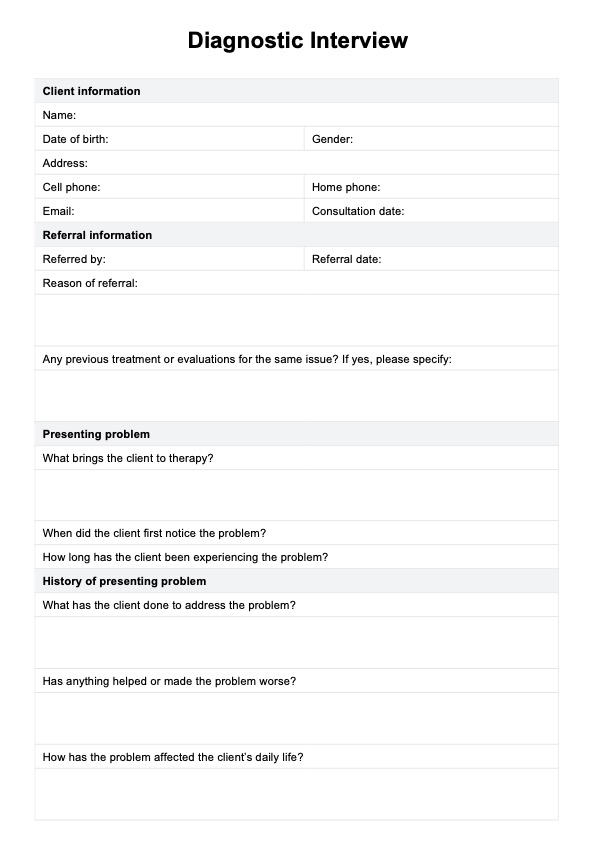The diagnostic interview is a crucial component of the assessment process. It allows clinicians to gather comprehensive information about the individual's presenting concerns, history, and current functioning. This information is essential for formulating an accurate diagnosis, developing an appropriate treatment plan, and monitoring progress over time.

Diagnostic Interview
Download our Diagnostic Interview Template as a structured process to assess, diagnose, and treat mental health conditions.
Diagnostic Interview Template
Commonly asked questions
During a diagnostic interview, clinicians aim to gather information about the individual's presenting concerns, including the nature, duration, and severity of symptoms. They also explore the individual's developmental, medical, social, and family history and any previous mental health treatment. Additionally, clinicians assess the individual's functioning in various domains, such as work, relationships, and daily activities.
Clinical questions in an interview are designed to elicit specific information relevant to the individual's presenting concerns and diagnostic considerations. These questions may focus on symptoms, such as asking about the frequency, duration, and intensity of symptoms experienced.
EHR and practice management software
Get started for free
*No credit card required
Free
$0/usd
Unlimited clients
Telehealth
1GB of storage
Client portal text
Automated billing and online payments











